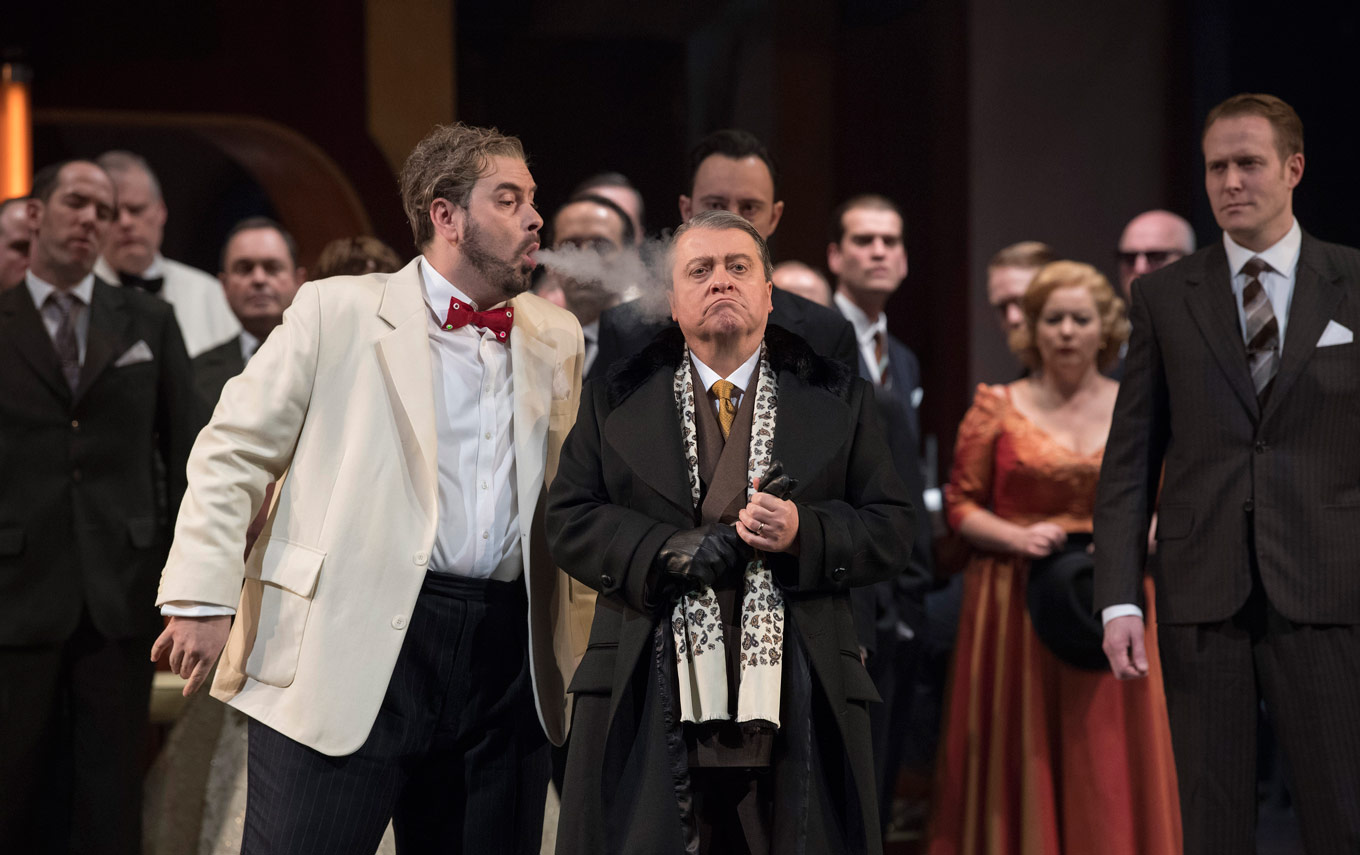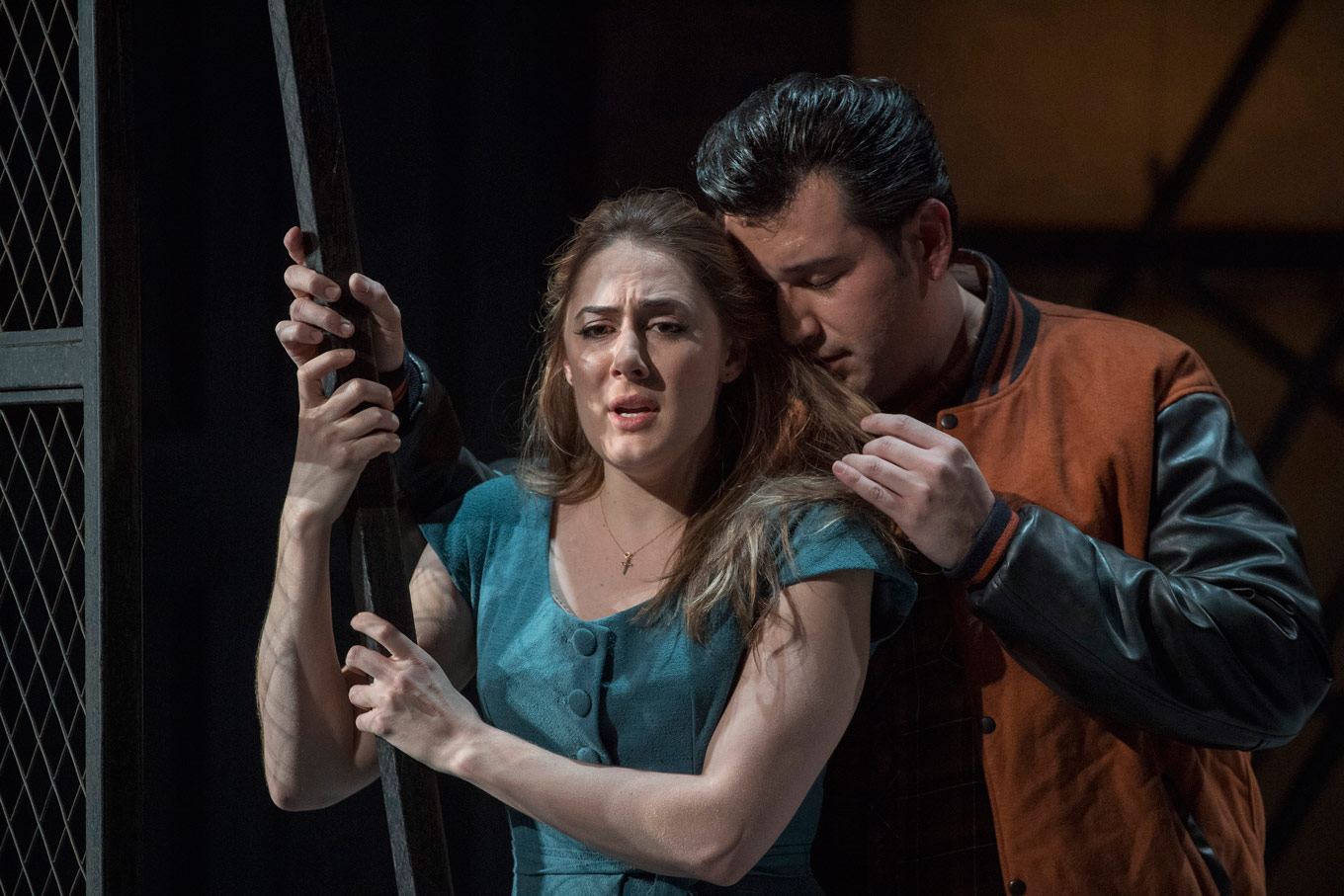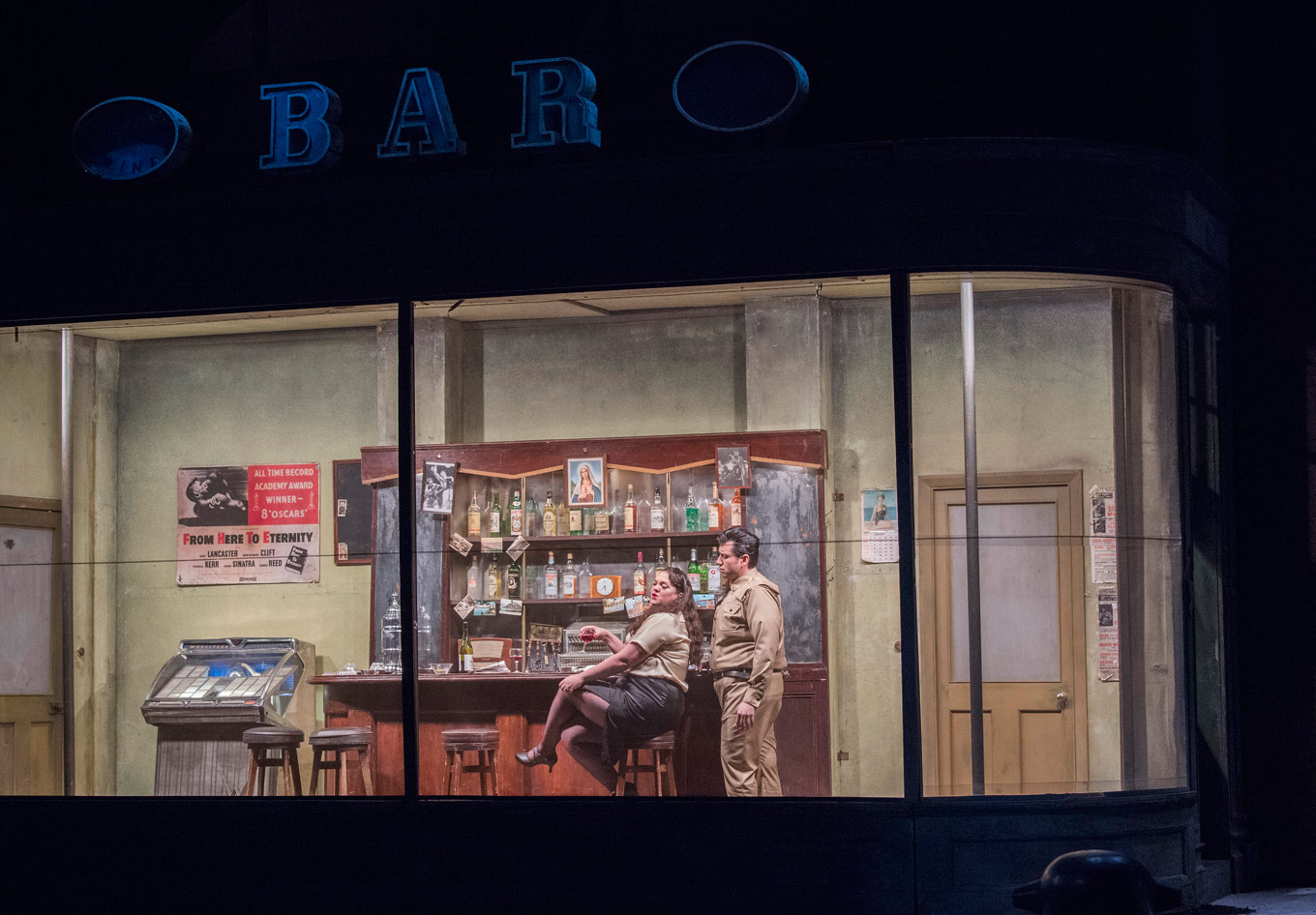
In review: Rigoletto at ENO
ReviewJonathan Miller’s production of Rigoletto has kicked off its 13th revival run at English National Opera. The 1950s/mafia-inspired production is bleak, even minimal, and it capitalizes on the bad behaviour of men and women.
Rigoletto is truly a maddening opera. The hunchback joker makes the most of his fate, working as an entertainer to men whose backs stand a little straighter. With good intentions, Rigoletto keeps his daughter captive at home, overcompensating for his apparent failure to protect her mother from the dangers of the world. The men in Rigoletto’s life are the bottom-dwellers of society, bullies cloaked in nice suits, lying pick-up artists, and opportunistic assassins.

Nicholas Pallesen debuts in the title role. He is a pitiable Rigoletto, a man utterly invisible except when his audiences crave some amusement. He’s gullible, if only because he’s desperate to find good qualities in his fellow men. His sound is benevolent and honest, setting him apart from the snarl of Sparafucile, or the infuriating ease of the Duke. He took dynamic risks that cost him focus in his tone, yet he was a character that earned sympathy right away.
Joshua Guerrero was fascinating Duke. He began the night with a friendly warmth in his sound, yet by the top of Act II, he revealed a strapping Italianate sound. Though distasteful, Guerrero’s Duke was no villain; instead, he seemed to mark the contrast between the Duke’s man-about-town attitude, and the profound naïveté of Gilda.
Barnaby Rea was a dangerous Sparafucile, oddly likeable for an assassin. With Madeleine Shaw as Maddalena, the pair had an opportunistic air about them, which is much more interesting than simple thirst for blood and money.
The night truly went to Sydney Mancasola, in her company debut as Gilda. Her first sounds were clear as a bell, like a sorbet to Rigoletto’s dark and murky world. Her singing was polished and thoughtful, with a stunning bloom at the top of her range. Frustrating as Gilda may be - though she comes by her innocence honestly - Mancasola sang with an earnest sound that reminded us of her youth and sheltered existence. Her duets with Pallesen were the highlights of the evening.

The ENO Orchestra, under Sir Richard Armstrong, offered goosebump moments from those first cursed chords. Armstrong left us wanting more of that rhythmic snap inherent in Verdi’s music; the music seemed to sag when it should have simmered. He seemed stubbornly opposed to the Italianate stretch in the score, hurrying the singers through what could have been effective moments of tension-and-release. The music seemed rushed, cramped, and we craved more space for Mancasola as she sang Gilda’s famous aria.

The production distilled the action into what’s important about Rigoletto, and that’s the relationship between the hunchback and his daughter. Yet there seemed something meandering and unfocused about this telling of tthe story, a problem not helped by setting it in a world where curses are unlikely to be taken seriously.
The English translation of the libretto by James Fenton was one that worked surprisingly well. It was surprising to hear musical choices that seemed left over from the score in its original language. Singers took breaths that would have made sense in Italian, but don’t in English; it’s something we heard in Tosca and in Madam Butterfly, and it’s a confusing oversight that takes away from the noble mission to make accessible one of opera’s greatest non-English hits.
Go and see this Rigoletto, if only for the excellent singing by Guerrero, Mancasola, and Pallesen. Performances run at the London Coliseum until February 28. For full details and ticket information, click here.


Comments